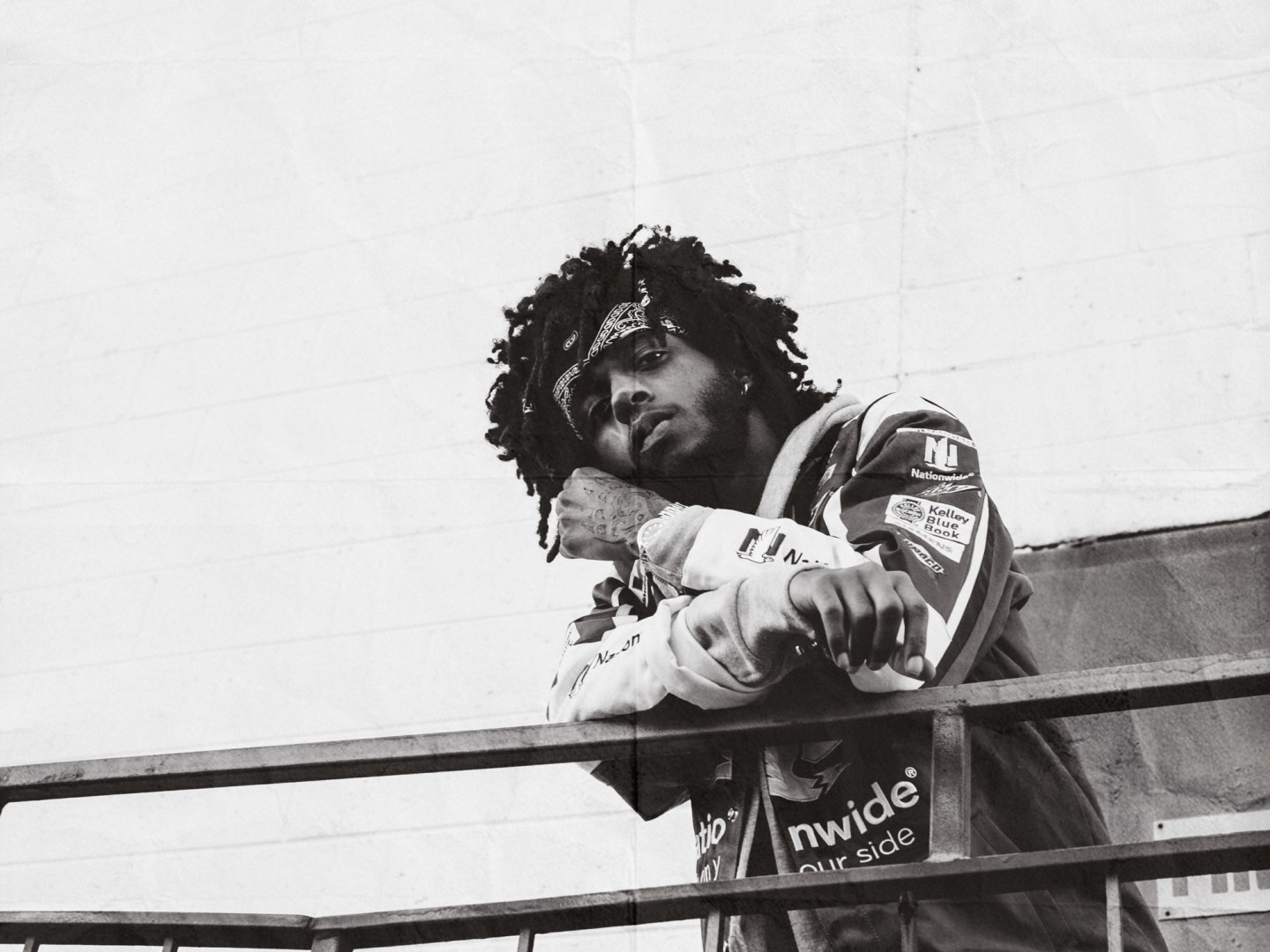 Faisal Mohammed
Faisal Mohammed
6LACK — pronounced "black" — wants to make music that people can relate to. The young Atlanta singer-songwriter's moody R&B songs are free from all pretense; he covers familiar topics (love, freedom) but without the flashiness that pervades the Top 40. Instead, he uses calming, intricate production to emphasize his consistent, confident voice, which has the gravelly tone that most boys have first thing in the morning.
On November 18, 6LACK will release his debut album FREE 6LACK, an 11-track project that fully realizes his self-proclaimed "monochrome" style. The songs display starkness and dedicated minimalism, but also provide comfort — the comfort that can be found in stripping down something until it just is what it is. Listening, I found myself repeating, He gets it.
Today, The FADER is premiering "Rules," a surreal but focused upbeat track about sticking to the goals he's set for himself. To find out more, I caught up with 6LACK on the phone just days after the unsettling events of November 8. In conversation, he displayed nothing but the calm assuredness that his music implies. On his way to the airport to fly home to Atlanta, he talked about his image, his music, and the importance of relatability in music today.
When did you start making music and how did you get into it?
I started super early, like 4 years old. I rapped all through elementary, middle school, and high school, but it was battle rap. And then I figured I should figure out how to make songs because the future wasn't really promising in that. But that was how I started off. I did it through grade school and I probably really locked in on recording demos and stuff around 7th or 8th grade. I'm 24 now.
What do you mean by the future wasn't promising?
I guess when it comes to music, I kind of study everything, including the market. A lot of my favorite battle rappers didn't have that much commercial success. So I figured I might as well figure out how to make songs because I don't want to have a short-lived career, or a career that is confined in just that realm of music.
What inspired the title FREE 6LACK?
Being free from my old deal and free from my old relationships, free from my old ways of thinking. It's just kind of a transition period for me. I was stuck in a deal for 4 or 5 years, and this is kind of like my coming out party.
What else inspired the album?
I touched on relationships a lot, and besides relationships, I touched on my label deal and just kind of where I come from — being from east Atlanta. Those are the main inspirations or the main topics I cover.
What influence do you think Atlanta has had on your music and message?
Atlanta has had the biggest influence. I was born in Baltimore, but I've lived in ATL since I was probably about 4 years old. I think that Atlanta is definitely like the Mecca right now. Everything either is coming out of it or passing through it, and whether it's the lingo, whether it's the fashion, whether it's the culture, I always feel like Atlanta is the center of everything. I just want to make sure I bring something that's familiar, but that's also new from Atlanta.
 Salim Garcia & Shamshawan Scott
Salim Garcia & Shamshawan Scott
“I always feel like Atlanta is the center of everything.”
Can you talk a little about the darkness your music displays?
I think the whole monochrome thing is kind of a reflection of where I feel like I am right now with my life. I went through a lot of stuff to get to this point, and I've been talking to friends, peers, fans too. I feel like when I reach another transitional period, or when I'm ready to graduate to something like color picture or color videos, I feel like that's a part of me growing as a person too. What it is right now is exactly what you feel when you look at it. You look at it right now, you see monochrome, you see moody, you see for the most part somebody who is still in the process of figuring shit out. I think the black and white pictures, and the black and white aesthetic, and the moody, dark aesthetic, it's not something that I ever tried to do. It's just who I am.
With everything that's going on today, what do you want your message to say about freedom?
I feel like it's an important thing, whether you're a creative or you have a job. Whatever it is, I feel like you never want to be involved in something that makes you feel like you're confined or you can't do what you love or what you feel like you were set out to do. I was stuck in my deal for a long time and there was a point where I felt like I might not be able to make it out or I might not be able to do what I want to do. I think whether it's in the work field, or whether it's in music, it's just good to feel like you're doing what you want to do.
How do you want people to respond to your music?
I just want to put something out and I want people to take something from it. Whether it's with relationships, whether it's with your everyday life, whether it's with music or your travel —whatever the hell it could be, I just want you listen and I want you to take something from it. I think relatability is an important thing right now, and it's almost an untouched thing. I think what people need is to feel like somebody understands or goes through the same shit that they go through.
If you're already successful, if you've already been signed for years, if you already have platinum records, you can't really talk about the come-up or talk about the struggle or talk about the things that people can relate to if you're already where you are. I think the beauty in what I get to do is cover a lot of topics that a lot of people go through on the daily.
Why do you think it's important to keep putting out music and moving forward in light of recent events?
I think for the most part, for everybody, music is therapy. It helps you get through a lot of the shit that's going on. I'm not super overly political, but I do know that people take stuff from my music, and I just want to make sure when they listen, they get some kind of message or some kind of feeling from it. There's a lot of stuff going on that can deter you or just get you kind of down in the dumps, especially watching the news and shit now, and seeing what's going on, but I know that music serves its purpose, and I want to make sure that I'm doing my job.
